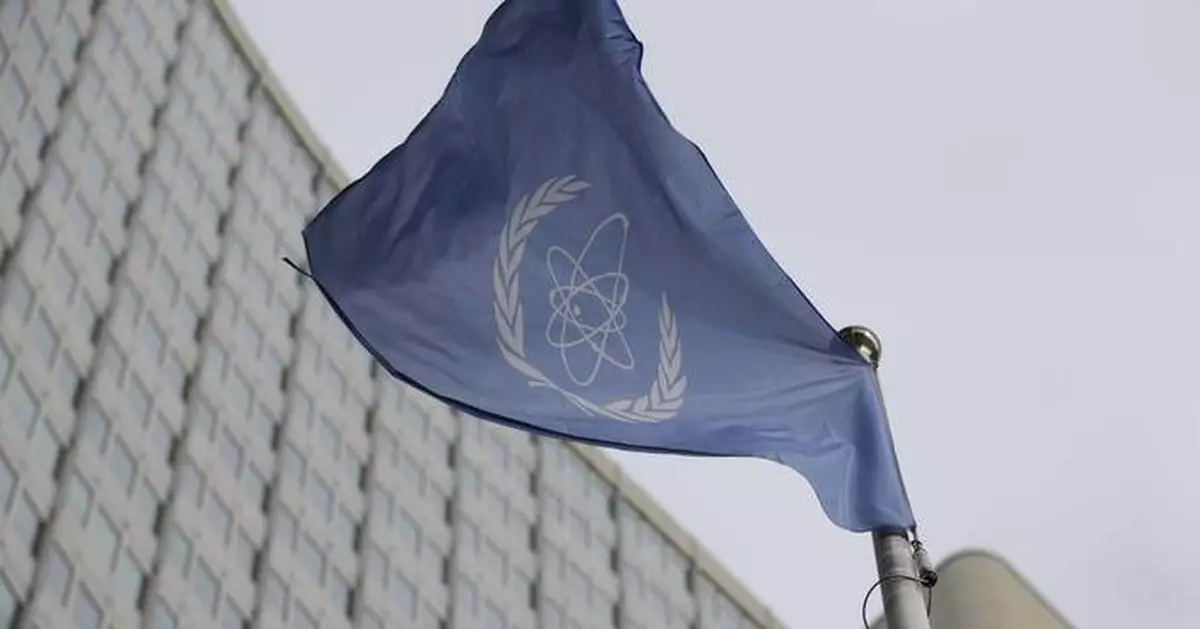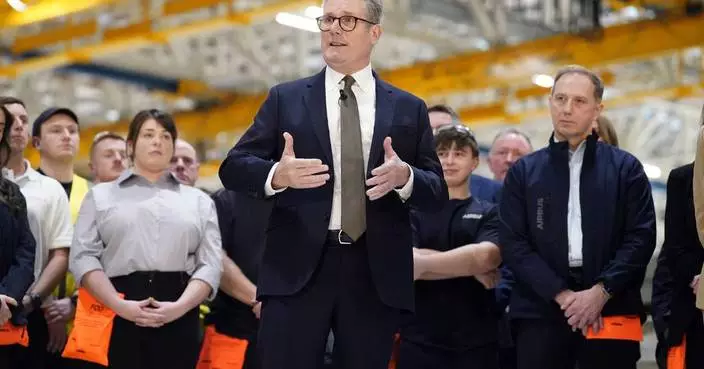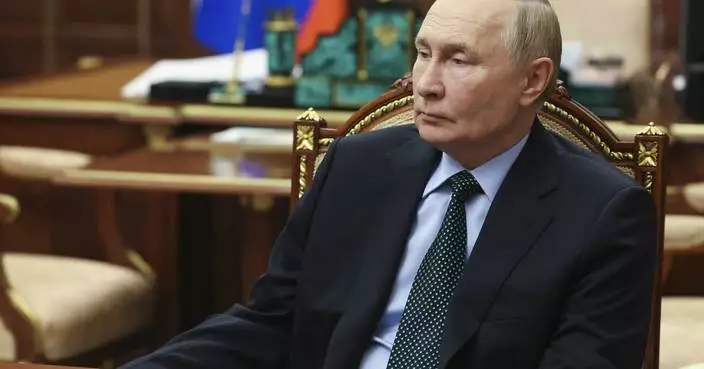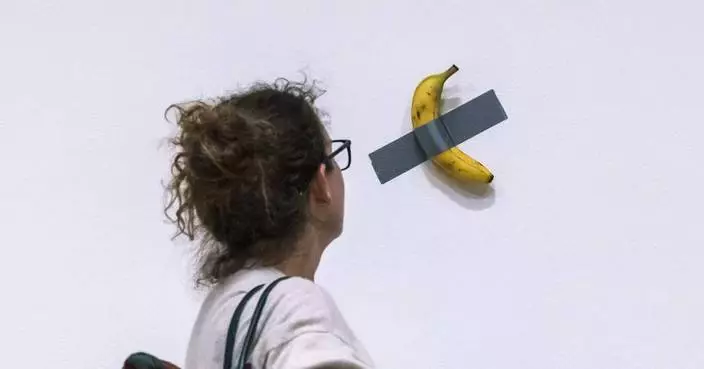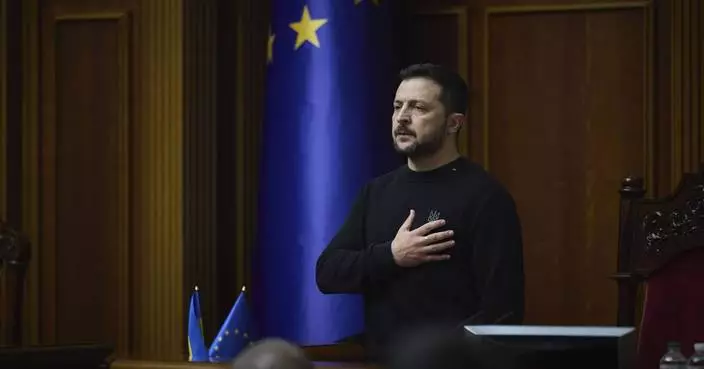VIENNA (AP) — Iran has defied international demands to rein in its nuclear program and has increased its stockpile of uranium enriched to near weapons-grade levels, according to a confidential report by the United Nations’ nuclear watchdog seen Tuesday by The Associated Press.
The report by the International Atomic Energy Agency said that as of Oct. 26, Iran has 182.3 kilograms (401.9 pounds) of uranium enriched up to 60%, an increase of 17.6 kilograms (38.8 pounds) since the last report in August.
Uranium enriched at 60% purity is just a short, technical step away from weapons-grade levels of 90%.
The IAEA also estimated in its quarterly report that as of Oct. 26, Iran’s overall stockpile of enriched uranium stands at 6,604.4 kilograms (14,560 pounds), an increase of 852.6 kilograms (1,879.6 pounds) since August. Under the IAEA’s definition, around 42 kilograms (92.5 pounds) of uranium enriched to 60% purity is the amount at which creating one atomic weapon is theoretically possible — if the material is enriched further, to 90%.
The reports come at a critical time as Israel and Iran have traded missile attacks in recent months after more than a year of war in Gaza, which is governed by Hamas, a group supported by Iran.
Adding to the complexity, Donald Trump’s reelection raises questions about whether and how the incoming administration and Iran may engage.
Trump’s first term in office was marked by a particularly troubled period, when he pursued a policy of “maximum pressure” against Tehran. He unilaterally withdrew America from Iran’s nuclear deal with world powers, leading to the sanctions hobbling the economy, and ordered the killing of the country’s top general.
Iran last week offered not to expand its stockpile of uranium enriched up to 60%, during a visit to Tehran by the IAEA chief, Rafael Mariano Grossi.
The IAEA said during the meetings, “the possibility of Iran not further expanding its stockpile of uranium enriched up to 60% U-235 was discussed, including technical verification measures necessary for the Agency to confirm this, if implemented.”
The report said that one day after Grossi left Iran, on Nov. 16, IAEA inspectors verified that “Iran had begun implementation of preparatory measures aimed at stopping the increase of its stockpile of uranium enriched up to 60 % U-235” at its underground nuclear sites in Fordow and Natanz.
The reports come ahead of this week’s regular IAEA Board of Governors meeting in Vienna. Western countries have been considering a resolution censuring Iran for its failure to improve cooperation with the agency.
A senior diplomat, who spoke on the condition of anonymity because of the sensitivity of the issue, said it is possible that the commitments made by Iran during the IAEA’s chief visit may not stand in case a resolution is passed. In the past, Iran has responded to resolutions by the IAEA Board of Governors by further enhancing its nuclear program.
Iran has maintained its nuclear program is for peaceful purposes only, but Grossi, has previously warned that Tehran has enough uranium enriched to near-weapons-grade levels to make “several” nuclear bombs if it chose to do so. He has acknowledged the U.N. agency cannot guarantee that none of Iran’s centrifuges may have been peeled away for clandestine enrichment.
The IAEA also reported that Iran has failed to take concrete steps as of now to improve cooperation, despite pleas by Grossi, who held talks last week with Mohammad Eslami of the Atomic Energy Organization of Iran, Iranian Foreign Minister Abbas Araghchi and Iran’s reformist President Masoud Pezeshkian.
However, Tuesday’s confidential report also said that during Grossi’s visit to Iran on Nov. 14, “Iran agreed to respond to the Agency’s concerns related to Iran’s withdrawal of the designation of several experienced Agency inspectors by considering the acceptance of the designation of four additional experienced inspectors.”
In September 2023, Iran barred some of the Vienna-based agency’s most experienced inspectors.
The report also said there was no progress thus far in reinstalling more monitoring equipment, including cameras, removed in June 2022. Since then, the only recorded data comes from IAEA cameras installed at a centrifuge workshop in Isfahan in May 2023 — although Iran has not provided the IAEA with access to this data and inspectors have not been able to service the cameras.
Last week, Eslami warned that Iran could retaliate if challenged at the upcoming IAEA board meeting. Grossi acknowledged some nations were considering taking action against Iran.
In an effort to ensure Iran could not develop atomic weapons, world powers struck a deal with Tehran in 2015 under which it agreed to limit enrichment of uranium to levels necessary for nuclear power in exchange for the lifting of economic sanctions. U.N. inspectors were tasked with monitoring the program
Under the original 2015 nuclear deal, Iran was allowed to enrich uranium only up to 3.67% purity, can maintain a stockpile of uranium of 300 kilograms and is permitted to use only very basic IR-1 centrifuges, machines that spin uranium gas at high speed for enrichment purposes.
A year after the U.S. withdrawal from the deal under Donald Trump, Iran started to gradually abandon all limits the deal put on its program and began enriching uranium to up to 60% purity.
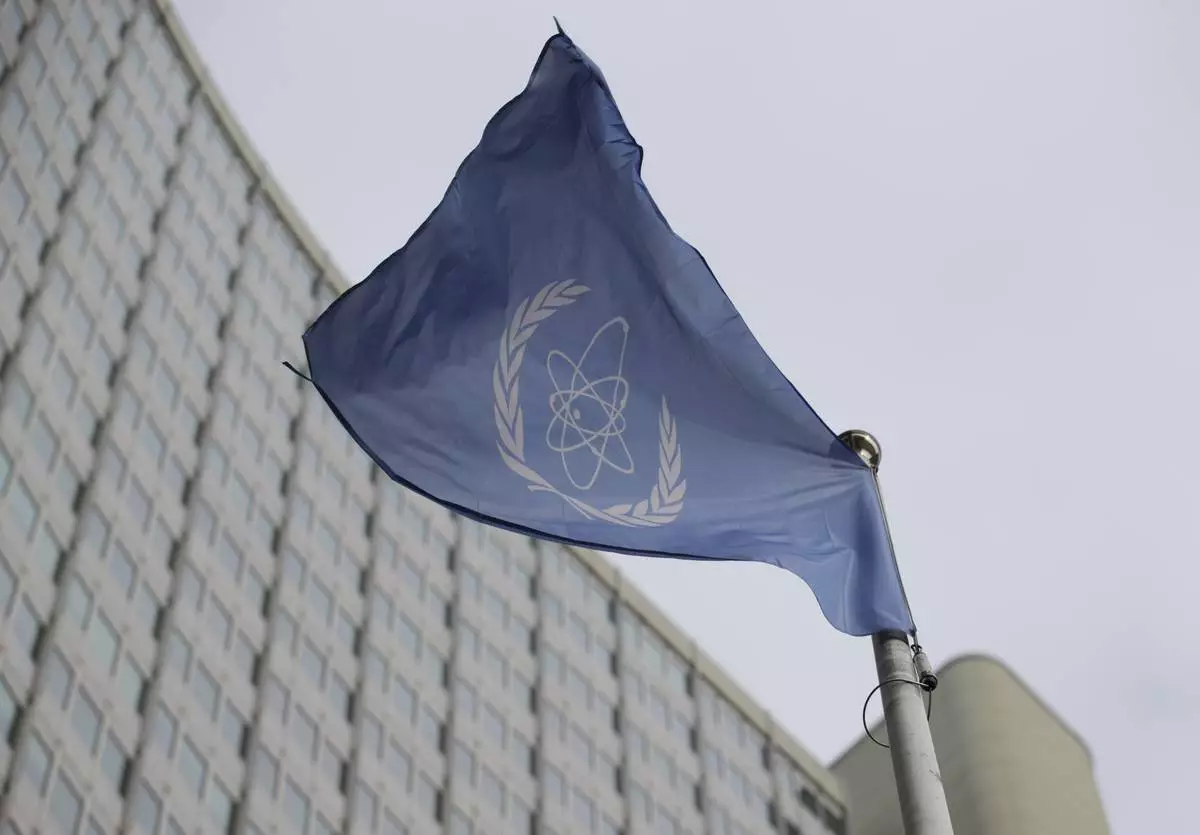
FILE - The flag of the International Atomic Energy Agency flies in front of its headquarters during an IAEA Board of Governors meeting in Vienna, Austria, on Feb. 6, 2023. (AP Photo/Heinz-Peter Bader, File)
BEIRUT (AP) — A United States envoy said an agreement to end the Israel-Hezbollah war is “within our grasp” after talks in Lebanon on Tuesday.
However, there was no such optimism in the Gaza Strip, where the looting of nearly 100 aid trucks by armed men worsened an already severe food crisis.
Amos Hochstein, the Biden administration’s pointman on Israel and Lebanon, arrived as Hezbollah’s allies in the Lebanese government said it had responded positively to the proposal, which would entail both the militants and Israeli ground forces withdrawing from a U.N. buffer zone in southern Lebanon.
The buffer zone would be policed by thousands of additional U.N. peacekeepers and Lebanese troops. Israel has called for a stronger enforcement mechanism, potentially including the ability to operate against any Hezbollah threats, something Lebanon is likely to oppose.
Hochstein said he had held “very constructive talks” with Lebanon’s Parliament Speaker Nabih Berri, an ally of Hezbollah who is mediating on the group’s behalf.
“Specifically today, we have continued to significantly narrow the gaps,” the envoy told reporters after the two-hour meeting. “It’s ultimately the decisions of the parties to reach a conclusion to this conflict...It is now within our grasp.”
Berri said the "situation is good in principle,” though some unresolved technical details remain. The Lebanese side was now waiting to hear the results of Hochstein's talks with Israeli officials, he told the Asharq al-Awsat newspaper.
The theft in Gaza over the weekend of nearly 100 trucks loaded with food and other humanitarian aid sent prices soaring and caused shortages in central Gaza, where most of the population of 2.3 million people have fled and where hundreds of thousands are crammed into squalid tent camps.
Experts say famine may already have set in in the north, where Israel has been waging a weekslong offensive that has killed hundreds of people and driven tens of thousands from their homes.
On Monday, a crowd of people waited outside a shuttered bakery in the central city of Deir al-Balah. A woman who had been displaced from Gaza City, identifying herself as Umm Shadi, said the price of flour had climbed to 400 shekels (over $100) a bag, if it can even be found.
Nora Muhanna, also displaced from Gaza City, said she was leaving empty-handed after waiting five hours for a bag of bread for her children. “From the beginning, there are no goods, and even if they are available, there is no money,” she said.
The United Nations said armed men stole food and other aid from 98 trucks over the weekend, the largest single incident of its kind since the war began. It did not say who was behind the theft.
U.N. spokesman Stephane Dujarric said the convoy of 109 trucks was instructed by the Israeli military to take an “alternative, unfamiliar route” after the aid was brought through the Kerem Shalom crossing, and that the trucks were robbed near the crossing itself.
Israel accuses criminal gangs and Hamas of stealing aid, allegations denied by the militant group.
Al-Aqsa TV, operated by the militants, said Hamas-run security forces in Gaza had launched an operation against looters, killing 20 of them.
Bassem Naim, a senior Hamas official based abroad, said the looters were young men from local Bedouin tribes, emphasizing that they do not necessarily represent the tribes. He said they operate east of Rafah near Israeli military positions.
The Hamas-run government had a police force of tens of thousands that maintained public security before the war, but they have vanished in many areas after being targeted by Israeli strikes. Hamas says it has taken measures to prevent looting and price-gouging in markets.
But the biggest problem is not theft – it’s the low amount of aid Israel allows into Gaza, said Tamara Alrifai, communications director for UNRWA, the U.N. agency with the biggest role in the humanitarian operation.
“Take aid into a war zone a few trucks at a time, what do we expect a displaced, hungry and traumatized population to do?” she said of the theft.
The flow of aid is at nearly the lowest level of the entire 13-month war. So far this month, Israel says it let into Gaza an average of 88 trucks a day – less than half the highest rate of the war, in April, which aid groups say was still too low.
From the aid that does enter, UNRWA says only about half actually reaches Palestinians because Israeli military restrictions and fears of theft often prevent the agency from collecting truck cargos at the border.
Israel says it puts no restrictions on the quantity of aid entering Gaza and that it is working to increase the amount. This month, it opened a new crossing into central Gaza. So far it has reported a few dozen trucks entering through it.
Hamas ignited the war in Gaza when its fighters stormed into Israel on Oct. 7, 2023, killing some 1,200 people, mostly civilians, and abducting around 250. Around 100 hostages are still inside Gaza, at least a third of them believed to be dead.
Israel’s retaliatory offensive has killed almost 44,000 Palestinians, more than half of them women and children, according to local health authorities, who do not distinguish between civilians and combatants in their toll. The war has left much of the territory in ruins and forced around 90% of Gaza’s population of 2.3 million to flee, often multiple times.
Hezbollah began firing rockets into northern Israel the day after the Hamas attack in what it said was solidarity with the Palestinians and Hamas, a fellow Iran-backed militant group. Israel launched retaliatory airstrikes, and all-out war erupted in September.
Israeli bombardment has killed more than 3,500 people in Lebanon and wounded almost 15,000, according to the Lebanese Health Ministry. It also displaced nearly 1.2 million, or a quarter of Lebanon’s population. On the Israeli side, 87 soldiers and 50 civilians have been killed by rockets, drones and missiles, and tens of thousands of Israelis have been evacuated from homes near the border.
The Biden administration has spent months trying to broker cease-fires on both fronts, though talks for a deal in the Gaza war have stalled.
President-elect Donald Trump has vowed to end the wars in the Middle East without saying how. He was a staunch supporter of Israel and its hawkish government during his first term.
Shurafa reported from Deir al-Balah, Gaza Strip and Khaled from Cairo.
Find more of AP’s coverage at https://apnews.com/hub/israel-hamas-war

Amos Hochstein, center, a senior adviser to President Joe Biden, is received ahead of a meeting with Lebanese Parliament speaker Nabih Berri, in Beirut, Lebanon, Tuesday, Nov. 19, 2024. (AP Photo/Hassan Ammar)
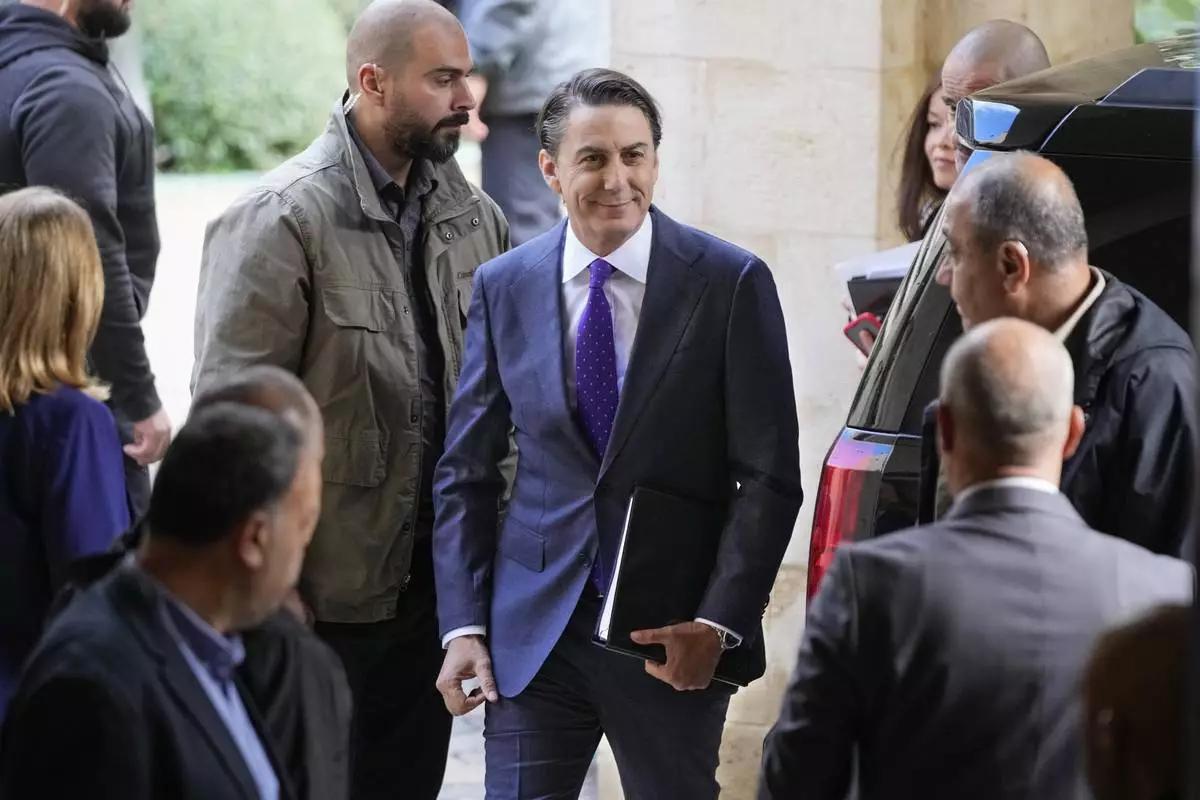
Amos Hochstein, center, a senior adviser to President Joe Biden, is received ahead of a meeting with Lebanese Parliament speaker Nabih Berri, in Beirut, Lebanon, Tuesday, Nov. 19, 2024. (AP Photo/Hassan Ammar)
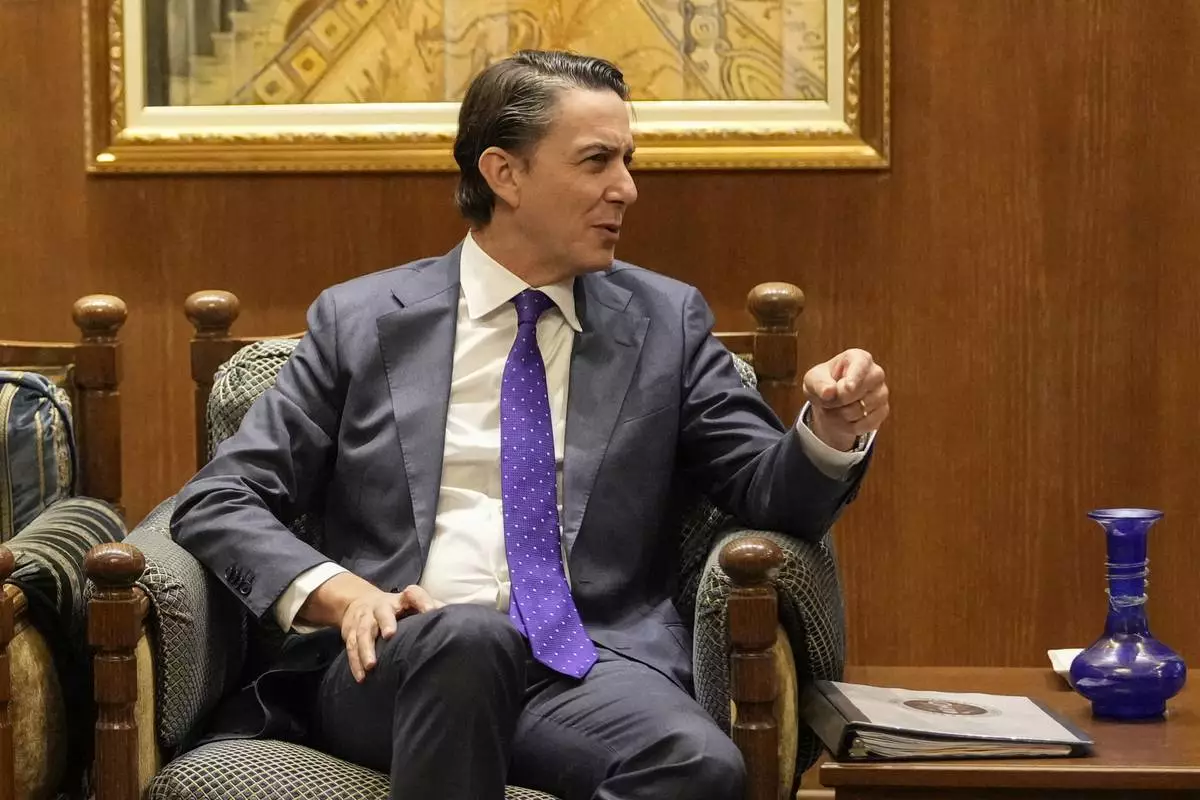
Amos Hochstein, a senior adviser to President Joe Biden, speaks with Lebanese Parliament speaker Nabih Berri during their meeting, in Beirut, Lebanon, Tuesday, Nov. 19, 2024. (AP Photo/Hassan Ammar)
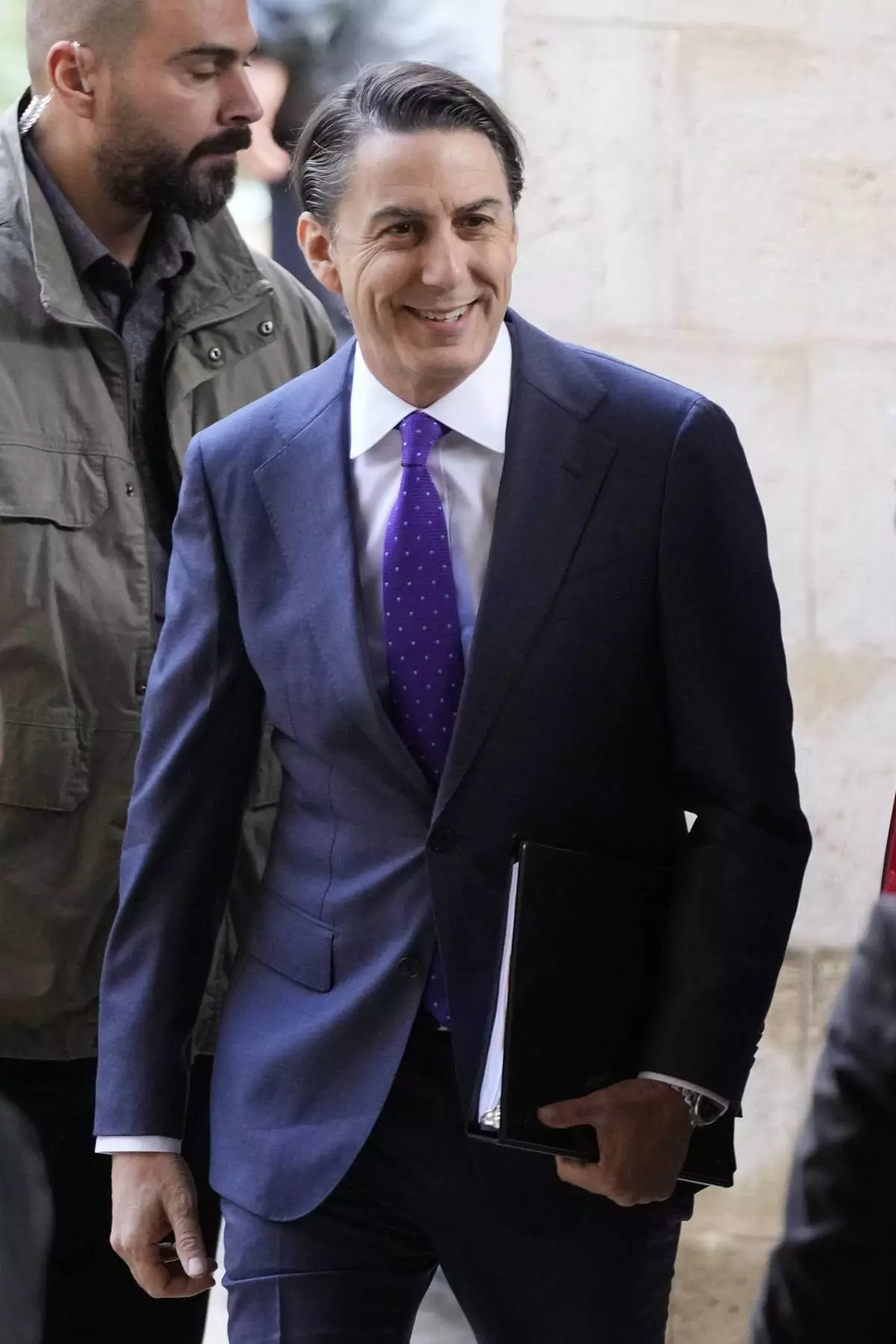
Amos Hochstein, center, a senior adviser to President Joe Biden, arrives for his meeting with Lebanese Parliament speaker Nabih Berri, in Beirut, Lebanon, Tuesday, Nov. 19, 2024. (AP Photo/Hassan Ammar)
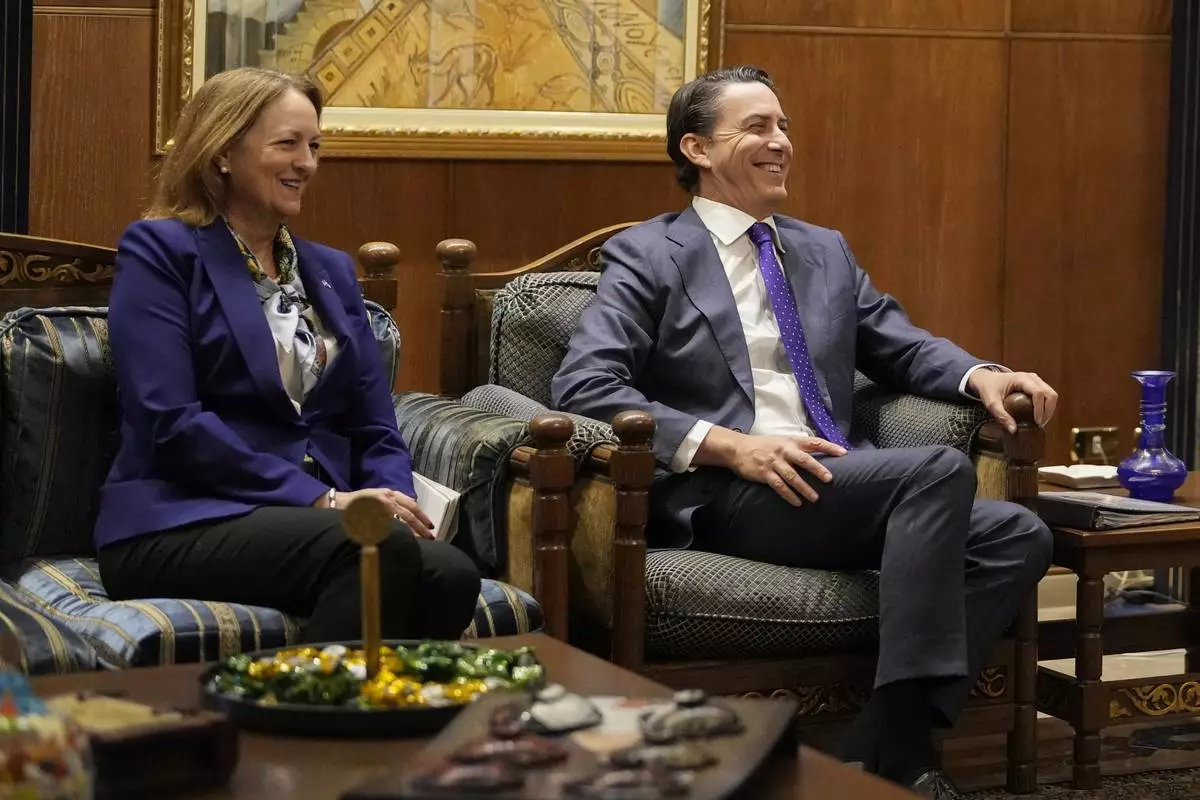
Amos Hochstein, right, a senior adviser to President Joe Biden, and US Ambassador to Lebanon Lisa A. Johnson, left, gesture during their meeting with Lebanese Parliament speaker Nabih Berri, in Beirut, Lebanon, Tuesday, Nov. 19, 2024. (AP Photo/Hassan Ammar)
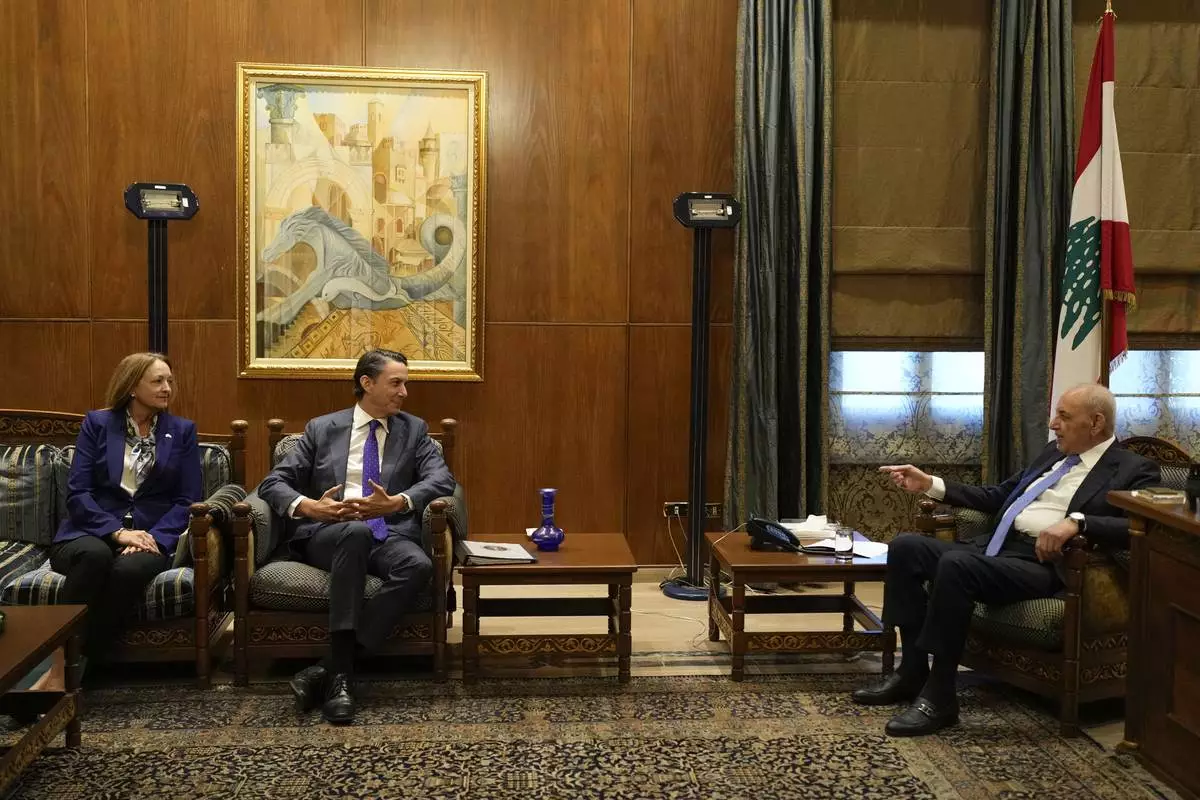
Amos Hochstein, center, a senior adviser to President Joe Biden, and US Ambassador to Lebanon Lisa A. Johnson, left, meet with Lebanese Parliament speaker Nabih Berri, in Beirut, Lebanon, Tuesday, Nov. 19, 2024. (AP Photo/Hassan Ammar)

Palestinians queue for food in Deir al-Balah, Gaza Strip, Monday, Nov. 18, 2024. (AP Photo/Abdel Kareem Hana)
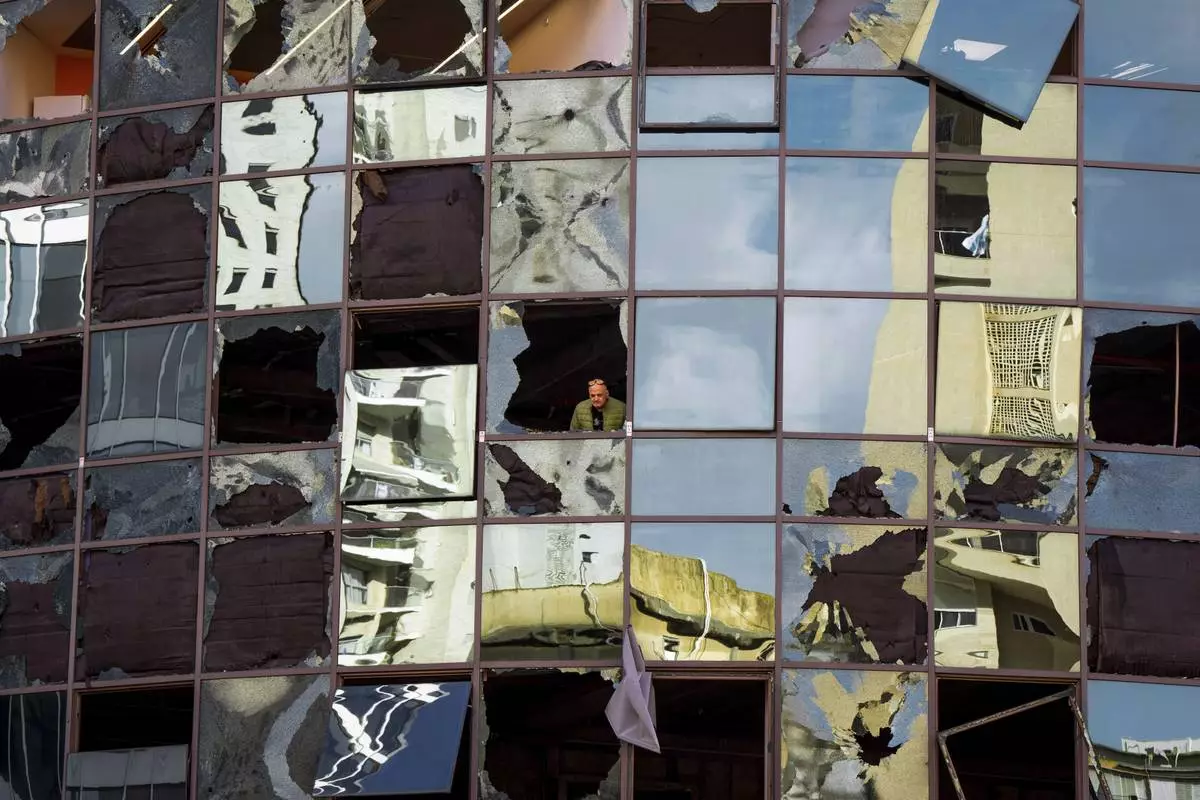
A man looks from a damaged building a day after it was hit by a rocket fired from Lebanon, in Ramat Gan, central Israel, Tuesday, Nov. 19, 2024. (AP Photo/Oded Balilty)
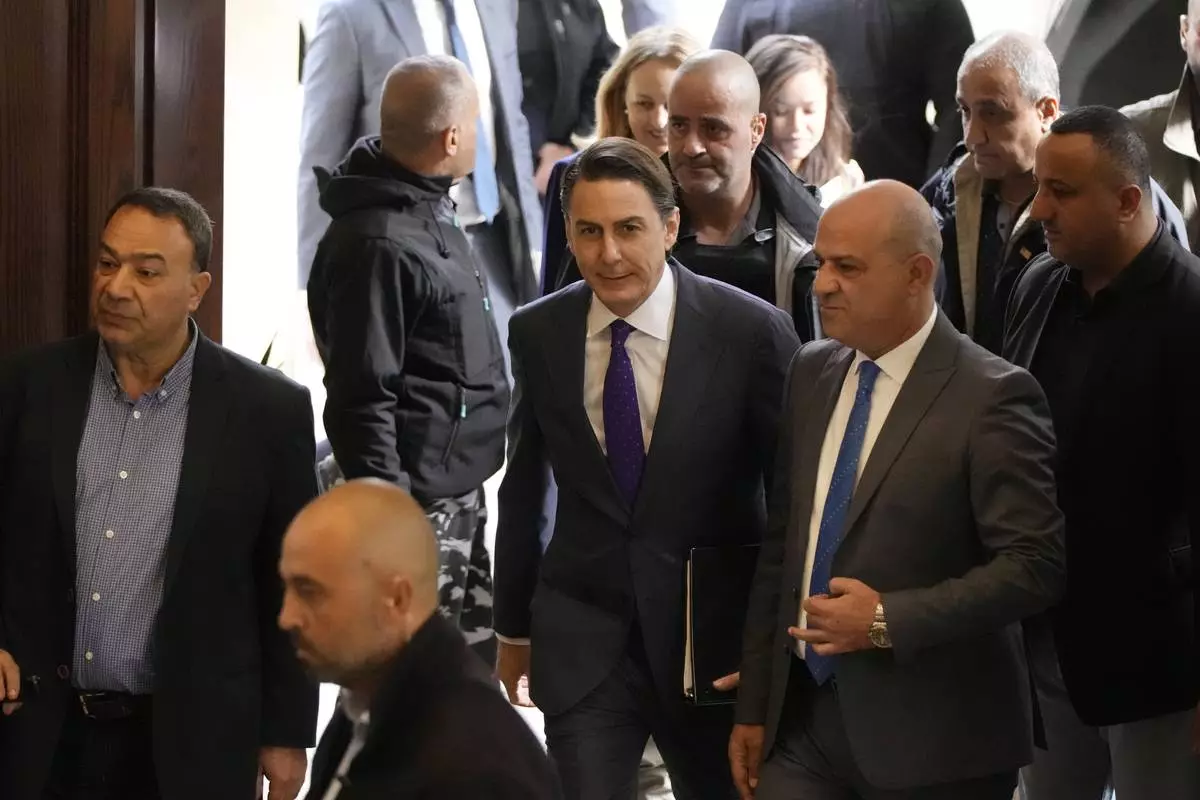
Amos Hochstein, center, a senior adviser to President Joe Biden, is received ahead of a meeting with Lebanese Parliament speaker Nabih Berri, in Beirut, Lebanon, Tuesday, Nov. 19, 2024. (AP Photo/Hassan Ammar)
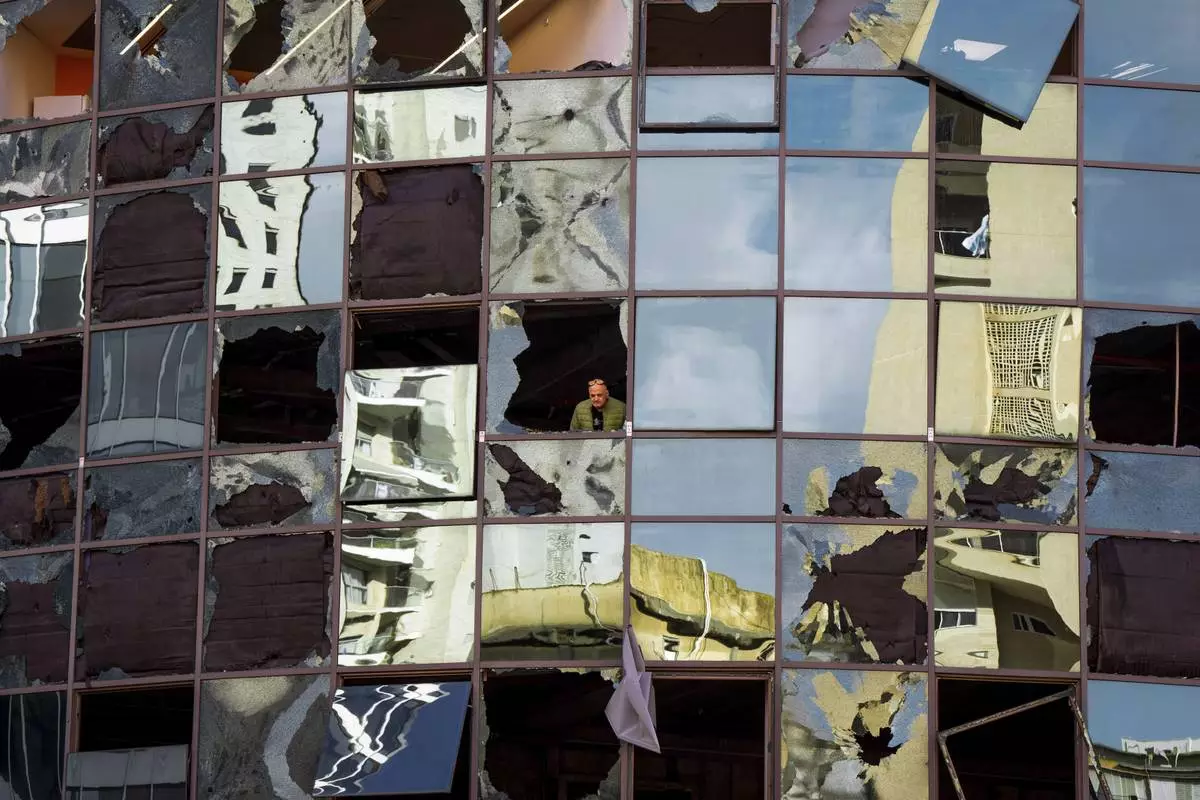
A man looks from a damaged building a day after it was hit by a rocket fired from Lebanon, in Ramat Gan, central Israel, Tuesday, Nov. 19, 2024. (AP Photo/Oded Balilty)
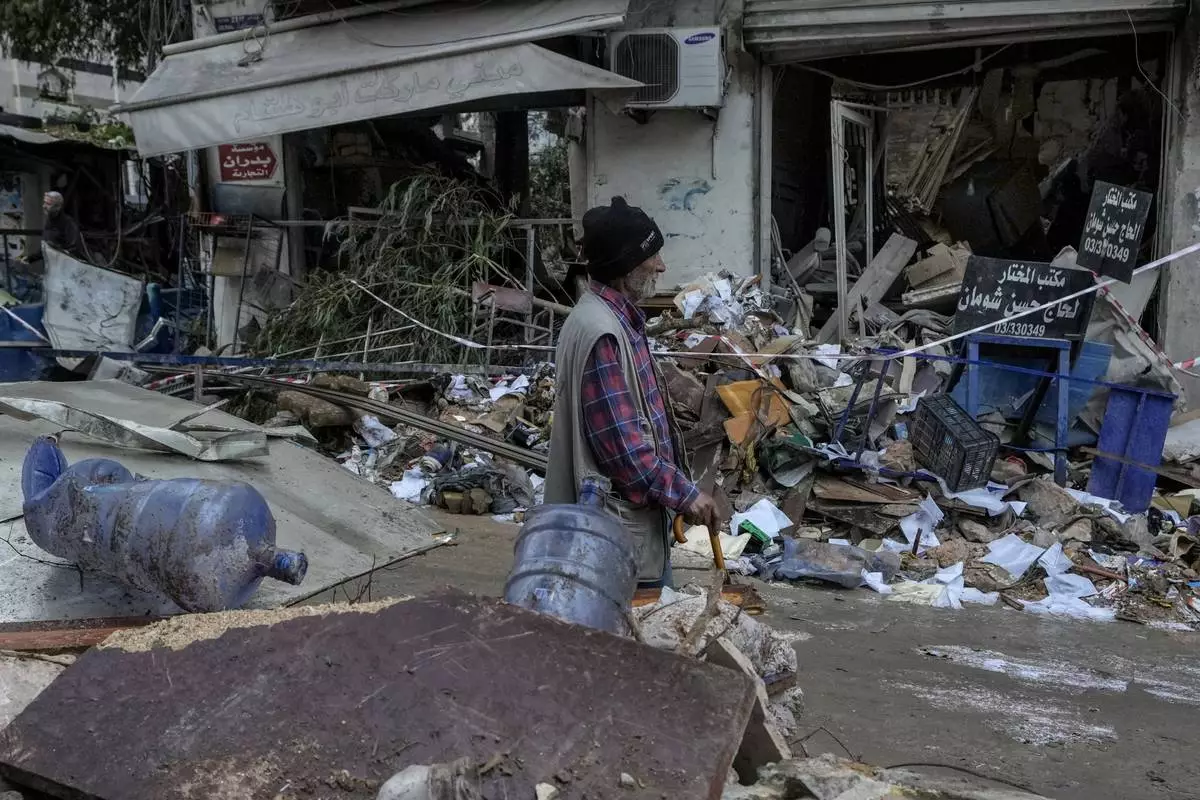
A man passes in front of a destroyed building hit on Monday evening by an Israeli airstrike in central Beirut, Lebanon, Tuesday, Nov. 19, 2024. (AP Photo/Bilal Hussein)
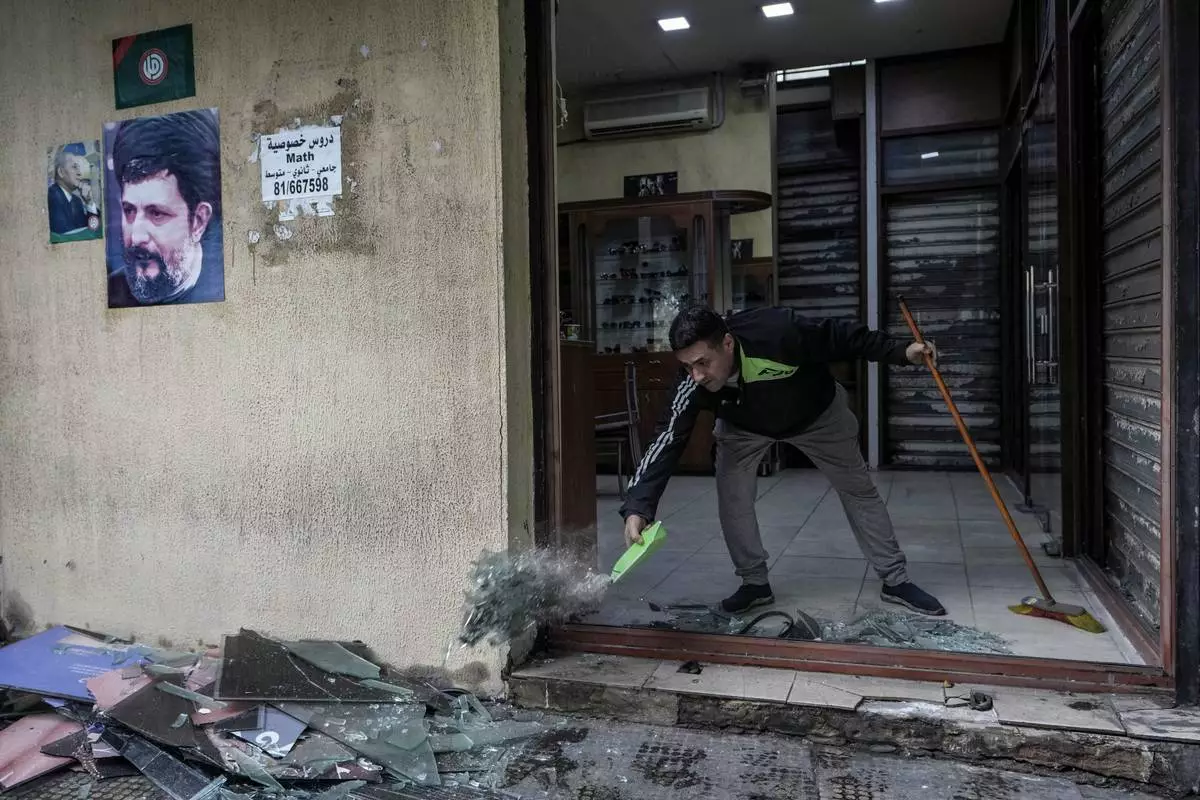
A man clears broken glass from his damaged shop near a building hit on Monday evening by an Israeli airstrike in central Beirut, Lebanon, Tuesday, Nov. 19, 2024. (AP Photo/Bilal Hussein)
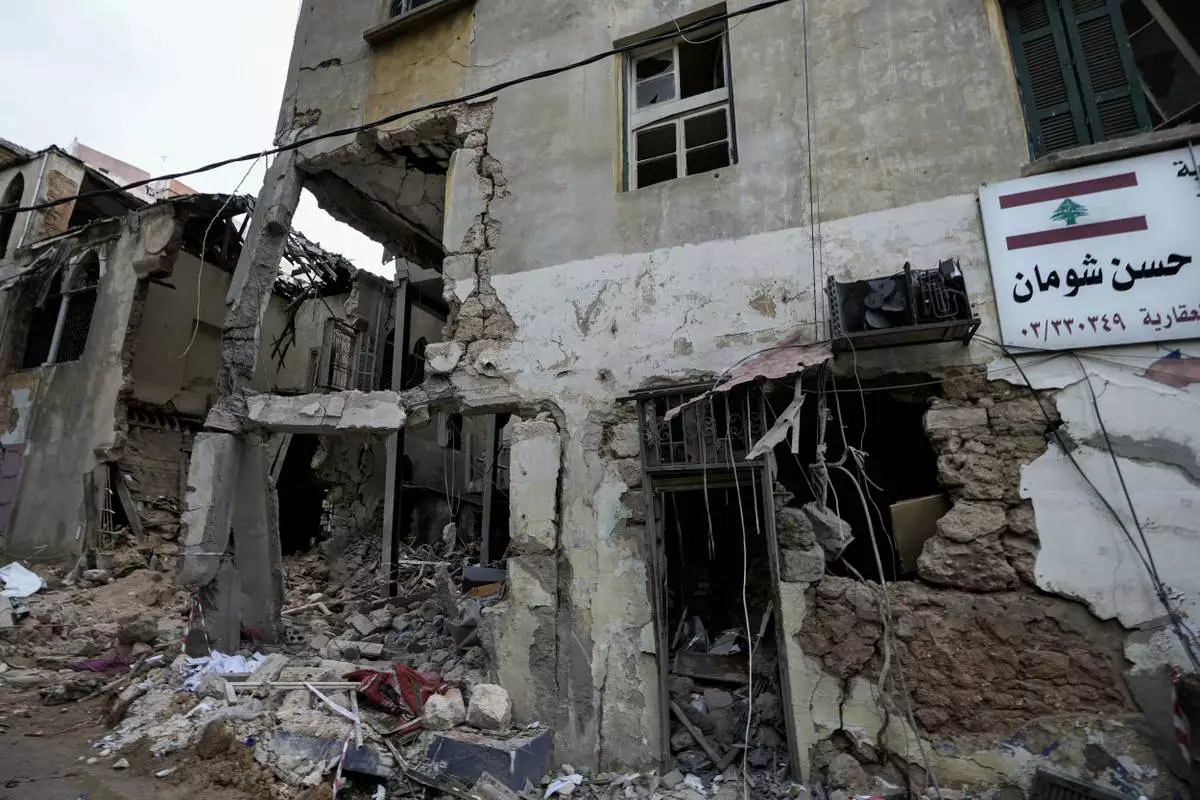
A destroyed building hit on Monday evening by an Israeli airstrike is seen in central Beirut, Lebanon, Tuesday, Nov. 19, 2024. (AP Photo/Bilal Hussein)
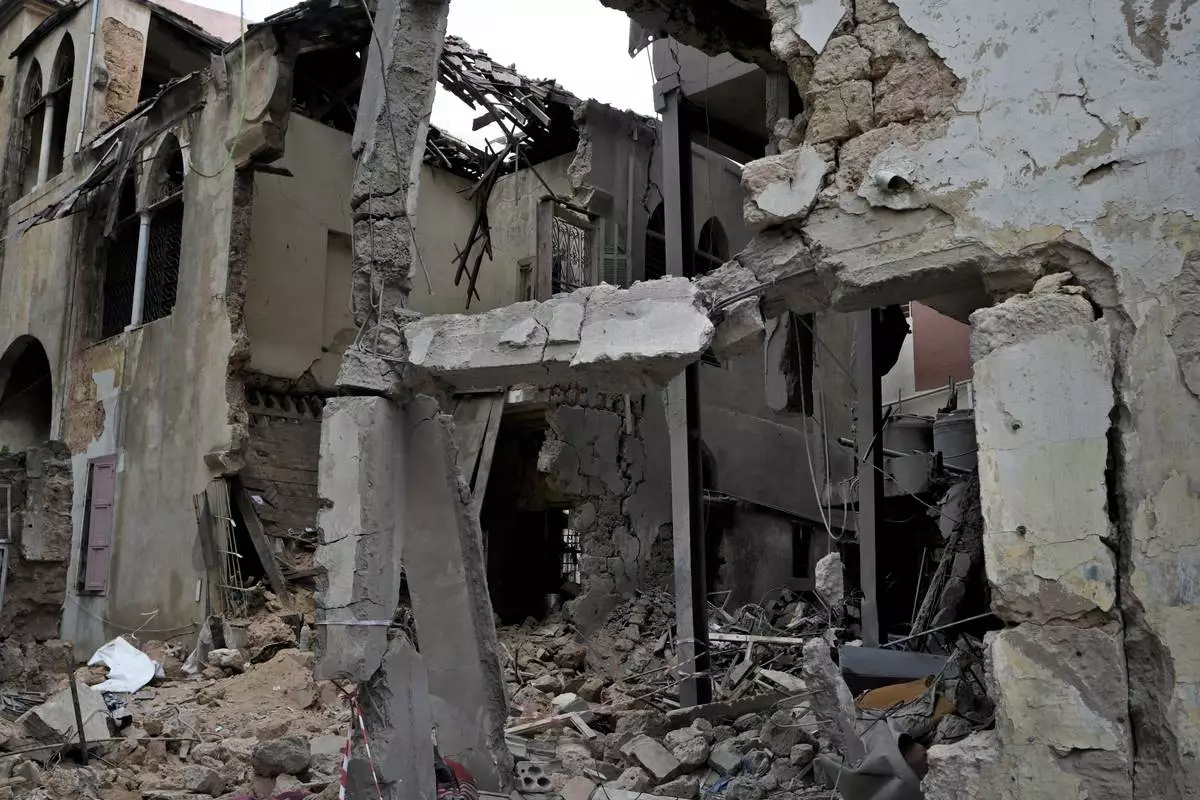
A destroyed building hit on Monday evening by an Israeli airstrike is seen in central Beirut, Lebanon, Tuesday, Nov. 19, 2024. (AP Photo/Bilal Hussein)
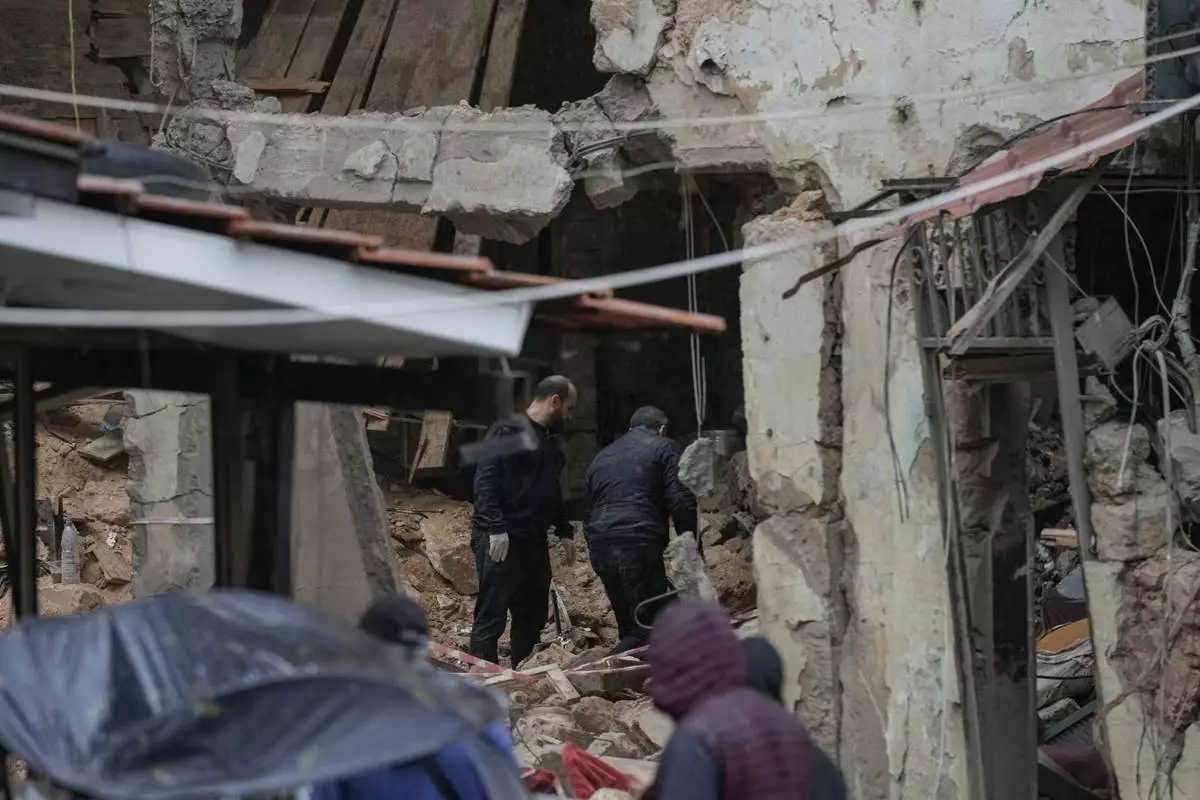
People inspect a destroyed building that was hit on Monday evening by an Israeli airstrike in central Beirut, Lebanon, Tuesday, Nov. 19, 2024. (AP Photo/Bilal Hussein)
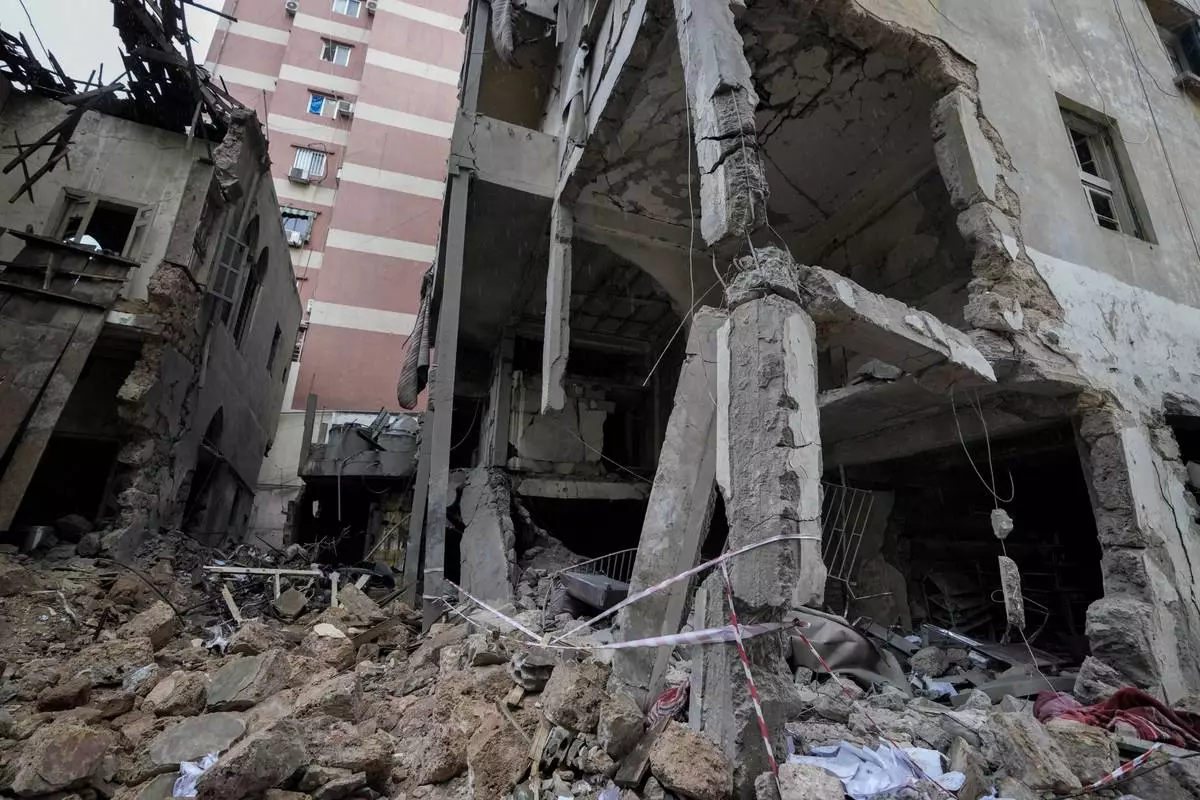
A destroyed building hit on Monday evening by an Israeli airstrike is seen in central Beirut, Lebanon, Tuesday, Nov. 19, 2024. (AP Photo/Bilal Hussein)
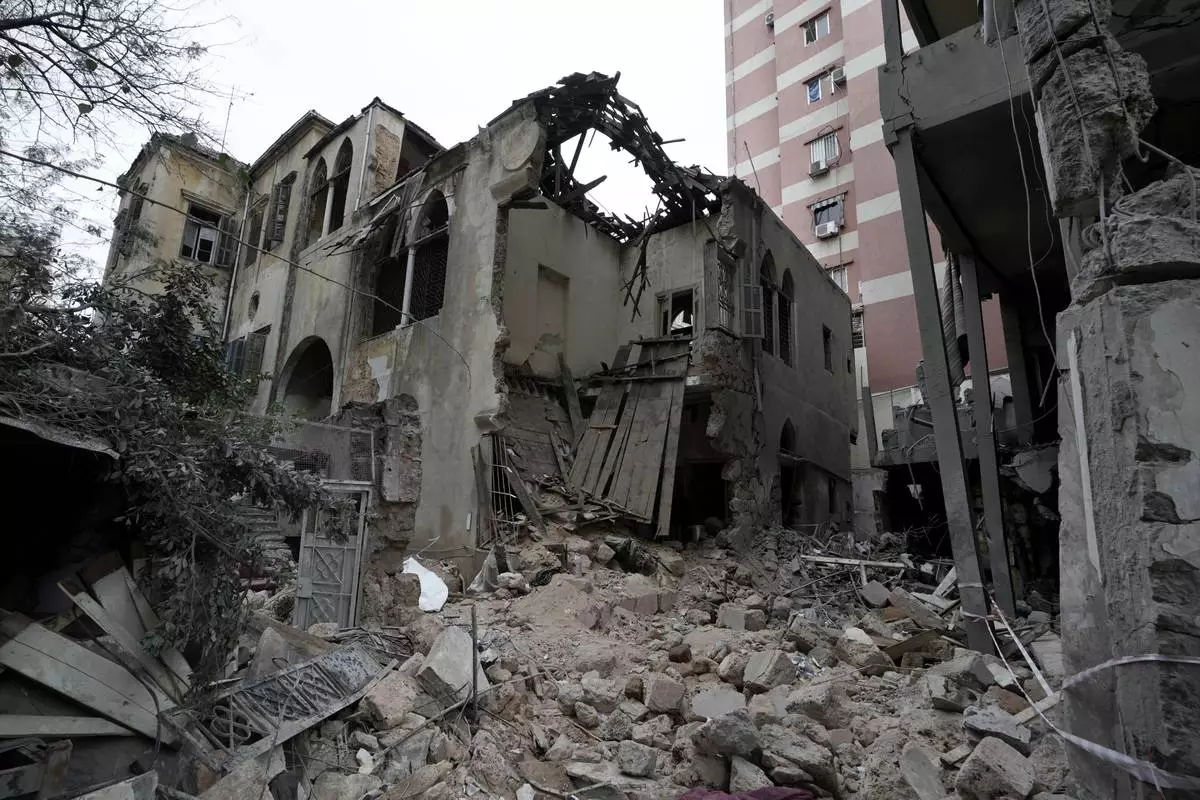
A destroyed building hit on Monday evening by an Israeli airstrike is seen in central Beirut, Lebanon, Tuesday, Nov. 19, 2024. (AP Photo/Bilal Hussein)
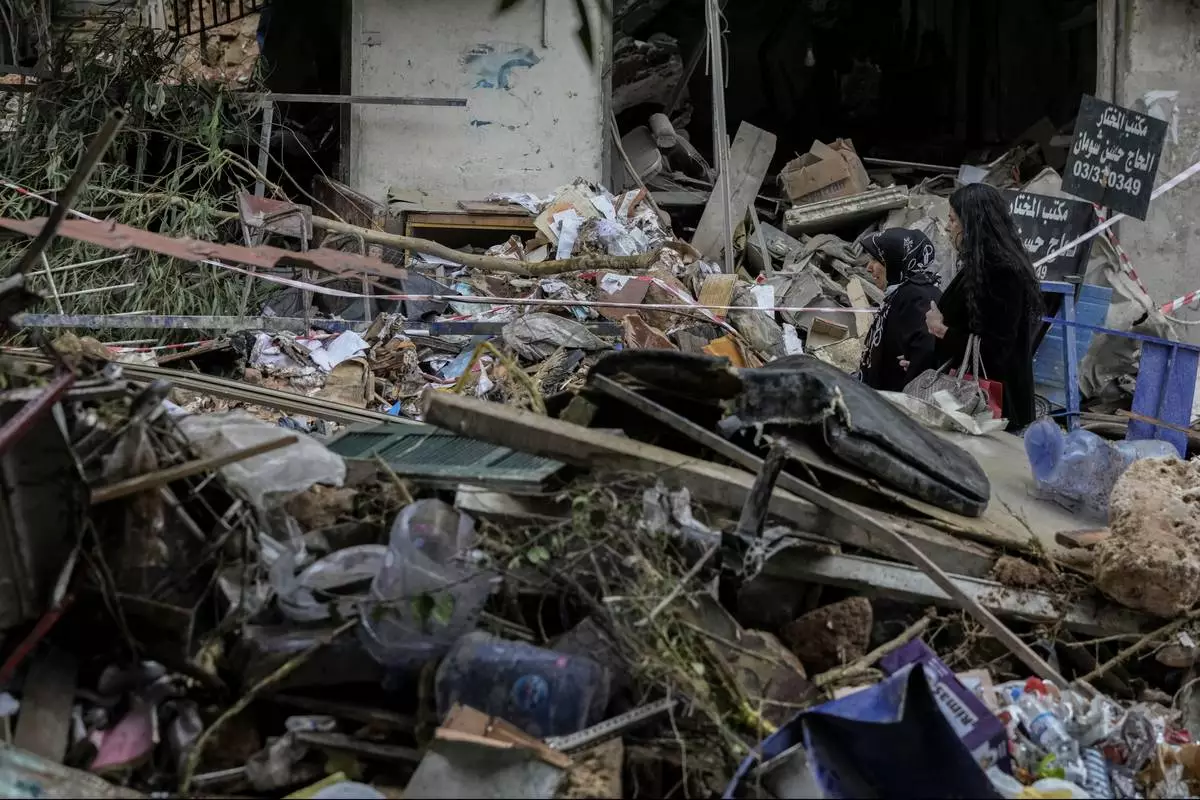
Women react as they pass through debris of a building hit on Monday evening by an Israeli airstrike in central Beirut, Lebanon, Tuesday, Nov. 19, 2024. (AP Photo/Bilal Hussein)
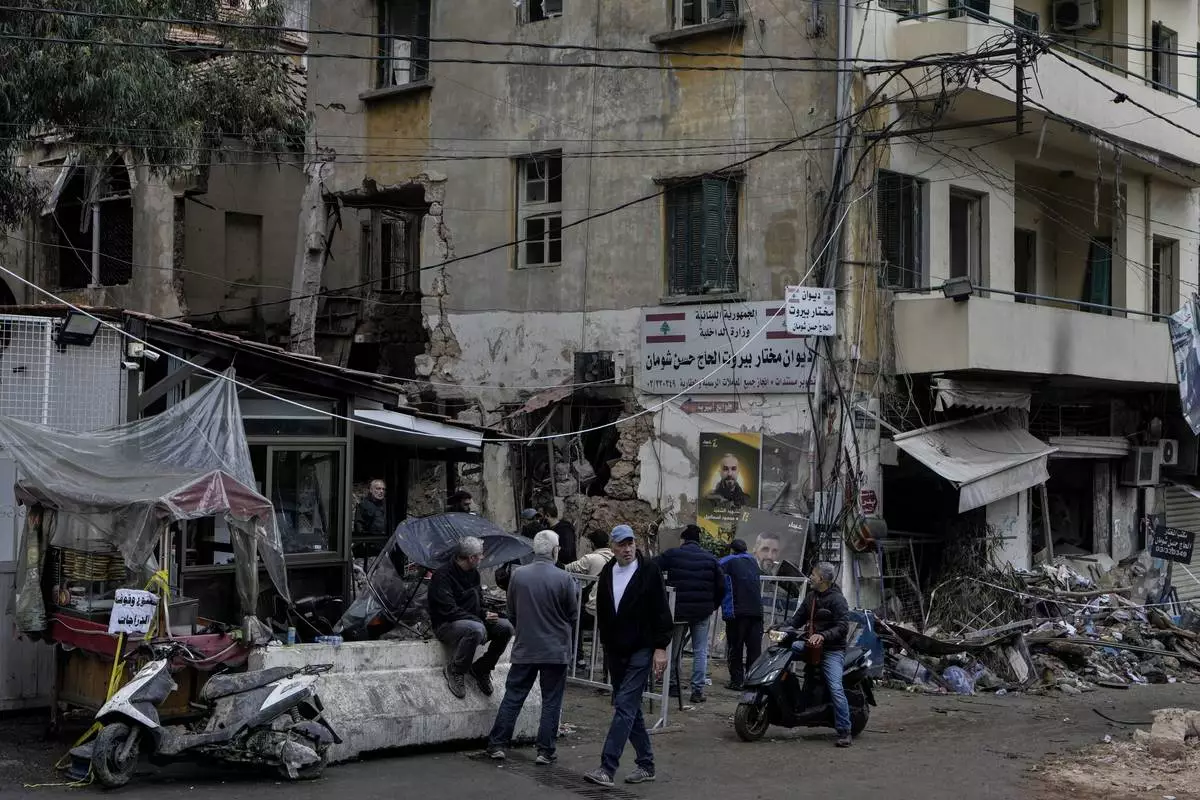
People stand next to a destroyed building hit on Monday evening by an Israeli airstrike in central Beirut, Lebanon, Tuesday, Nov. 19, 2024. (AP Photo/Bilal Hussein)
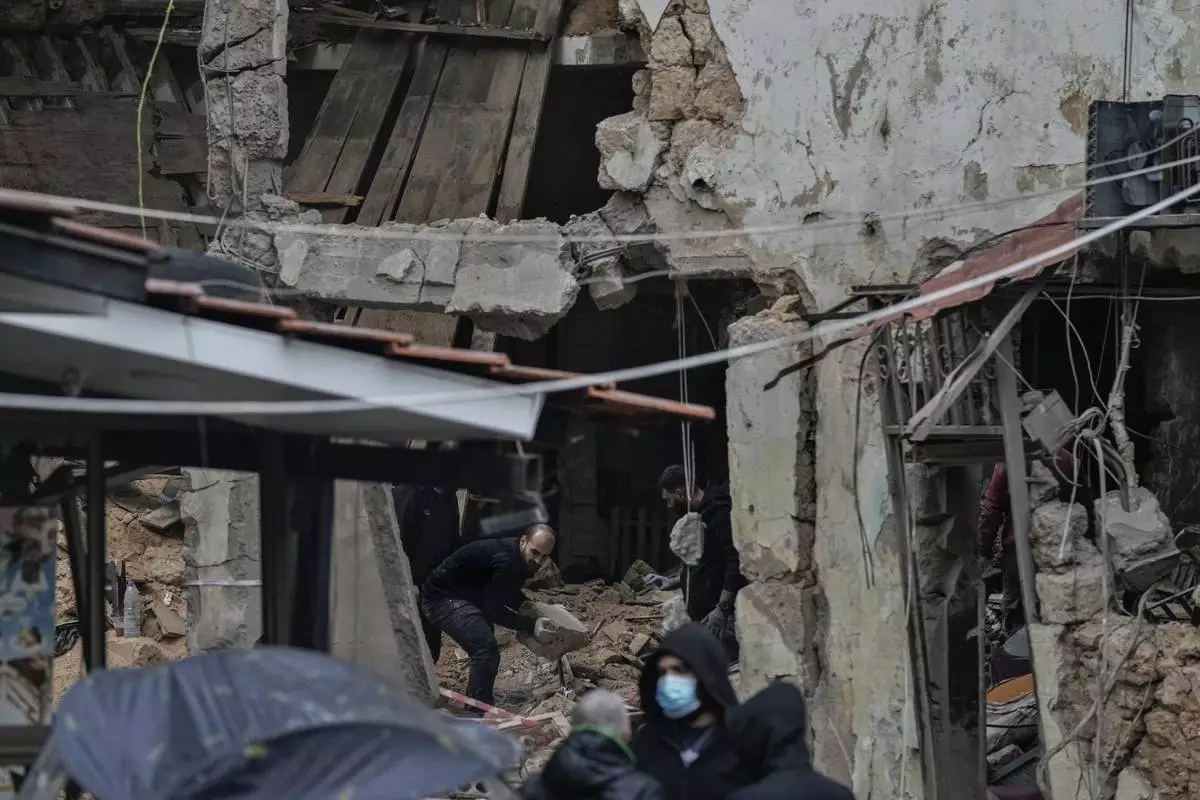
People inspect a destroyed building hit on Monday evening by an Israeli airstrike in central Beirut, Lebanon, Tuesday, Nov. 19, 2024. (AP Photo/Bilal Hussein)

Palestinians gather near a closed bakery, amid a shortage in flour and the closure of a main bakery in central Gaza have exacerbated an already dire humanitarian situation, in Deir al-Balah, Gaza Strip, Monday, Nov. 18, 2024. (AP Photo/Abdel Kareem Hana)

A Palestinian woman queues for food in Deir al-Balah, Gaza Strip, Monday, Nov. 18, 2024. (AP Photo/Abdel Kareem Hana)

Palestinians queue for food in Deir al-Balah, Gaza Strip, Monday, Nov. 18, 2024. (AP Photo/Abdel Kareem Hana)

Palestinians gather near a closed bakery amid a shortage in flour and the closure of a main bakery in central Gaza have exacerbated an already dire humanitarian situation, in Deir al-Balah, Gaza Strip, Monday, Nov. 18, 2024. (AP Photo/Abdel Kareem Hana)

Palestinians queue for food in Deir al-Balah, Gaza Strip, Monday, Nov. 18, 2024. (AP Photo/Abdel Kareem Hana)

A Palestinian child queues for food in Deir al-Balah, Gaza Strip, Monday, Nov. 18, 2024. (AP Photo/Abdel Kareem Hana)



